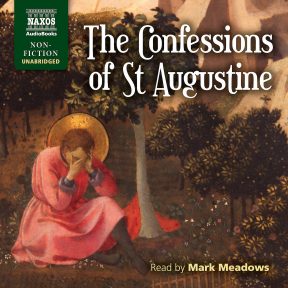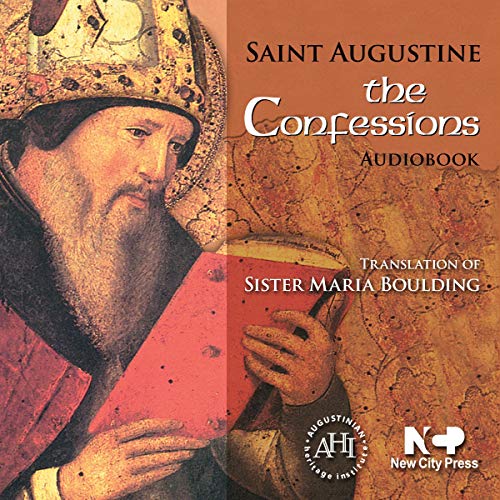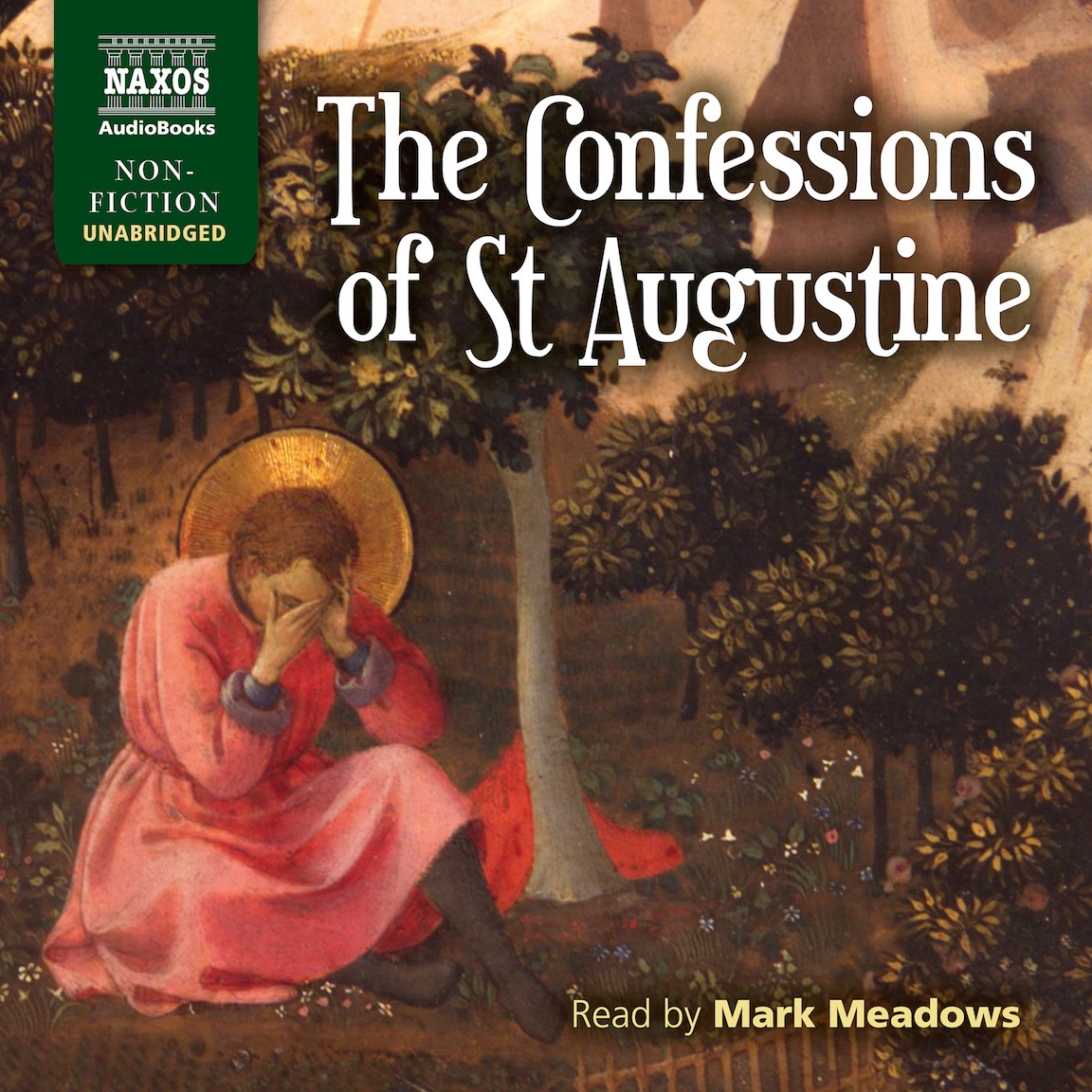Saint Augustine’s “Confessions” audiobook is a spiritual autobiography. It explores his journey from sin to faith.
Saint Augustine’s “Confessions” is a profound work that delves into his spiritual transformation. This audiobook offers an intimate look at his early life, struggles with sin, and eventual conversion to Christianity. Augustine’s reflections on his past and his search for divine truth resonate deeply with listeners.
The text addresses universal themes such as the nature of good and evil, the search for meaning, and the power of faith. This timeless classic remains relevant, providing insights into human nature and the divine. Ideal for those seeking spiritual enrichment, “Confessions” continues to inspire and enlighten readers and listeners alike.

Introduction To ‘confessions’
Saint Augustine’s “Confessions” audiobook delves into the profound journey of his spiritual awakening. This timeless work explores themes of faith, repentance, and divine grace.
Augustine’s Background
Saint Augustine was born in 354 AD. He lived in North Africa. His mother was a devout Christian. His father was a pagan. Augustine was very smart. He studied in Carthage. He loved to read and learn. He had many questions about life. He searched for truth in many places. Finally, he found peace in Christianity.
Impact On Christian Theology
Augustine’s writings shaped Christian theology. Confessions is his most famous work. It is a personal story of faith. It talks about his struggles and his conversion. Many people find inspiration in his words. His ideas influenced many Christian thinkers. His work is still important today.
The Structure Of ‘confessions’
‘Confessions’ is a mix of autobiography and theology. Augustine starts with his early life. He shares his journey towards faith. The book is written as a prayer to God. Augustine reflects on his past sins. He seeks forgiveness and understanding. The narrative is deeply personal and emotional. Readers follow his journey of self-discovery. Each chapter builds on the last. The flow is smooth and engaging.
Themes in ‘Confessions’ include sin, redemption, and grace. Augustine explores the nature of evil. He questions human free will. The book discusses God’s omnipotence. Themes of love and truth are also present. Augustine’s inner conflicts are a central motif. His struggles with temptation are vividly described. The search for wisdom is another key motif. The book is rich with philosophical insights. It remains relevant to readers today.
Key Philosophical Concepts
Evil is not a substance or a thing. It is the absence of good. Augustine believes that everything God creates is good. Evil happens when things lose their goodness. People do bad things because they turn away from God. They choose lesser goods over higher ones. This turning away creates a void, and that void is evil.
Augustine thinks deeply about time. Time is a part of our world, but God exists outside of time. Past, present, and future are all real in our minds. The past exists in our memory. The present is our current experience. The future is our expectations. Time is a mystery, but our minds help us understand it. Memory plays a key role in how we experience time.
Augustine’s Journey Of Faith
Augustine was born in 354 AD in North Africa. His early life was full of temptations. He loved to party and indulge in worldly pleasures. Augustine’s mother, Monica, was a devout Christian. She prayed for his conversion every day. Augustine studied in Carthage, where he read many books. He found pleasure in reading, but he still felt empty inside. Augustine had a brilliant mind and often questioned life. His search for truth led him through many philosophies.
One day, Augustine heard a child’s voice saying, “Take up and read.” He picked up the Bible and read a passage that touched his heart. This moment changed his life forever. Augustine realized the truth of Christianity. He was baptized by Saint Ambrose in Milan. Augustine’s conversion brought him immense joy and peace. He then decided to live a life dedicated to God. His mother, Monica, was overjoyed by his conversion. Augustine’s story shows the power of faith and prayer. His writings continue to inspire millions around the world.
Literary Techniques In ‘confessions’
Saint Augustine uses simple yet powerful language. He writes with clarity and precision. His words are easy to understand. This makes his message clear. He uses short sentences. This helps readers follow his thoughts. Many people can relate to his language. He often speaks from the heart. This makes his work deeply emotional.
Symbolism and allegory play a big role in ‘Confessions’. Augustine uses light and darkness as symbols. Light represents truth and wisdom. Darkness represents ignorance and sin. These symbols help readers understand his journey. He also uses water as a symbol. Water represents cleansing and renewal. These symbols make his story rich and meaningful.

The Audiobook Experience
The narrator’s voice is clear and engaging. He brings Saint Augustine’s words to life. The tone is both serious and soothing. Each chapter is read with great emotion. This helps listeners stay interested. The pacing is perfect. It is neither too fast nor too slow. This makes it easy to follow.
The background music enhances the listening experience. Gentle tunes play in the background during key moments. This adds to the emotional impact. Occasionally, there are sound effects. They help to set the scene. These effects are subtle and well-placed. They never distract from the narration. Overall, the music and sounds complement the story beautifully.
Comparative Analysis
Saint Augustine’s ‘Confessions’ is different from other religious texts. It is a personal story. It talks about his struggles and faith. Many religious texts are instructional. They give rules or teachings. Augustine shares his life and thoughts. This makes ‘Confessions’ very unique.
‘Confessions’ still matters today. People look for meaning in their lives. Augustine’s journey feels real to many. His questions and doubts are like ours. The audiobook helps us connect. We can listen and reflect. It gives comfort and insight.
Legacy Of ‘confessions’
Saint Augustine’s ‘Confessions’ has influenced many writers and thinkers. This book is a cornerstone of Christian literature. It has shaped the autobiographical genre. Many authors draw inspiration from Augustine’s honest reflections. His work is a blend of philosophy and theology. It has been a guiding light for countless generations.
‘Confessions’ remains relevant even today. It addresses universal themes like faith, sin, and redemption. People find comfort in Augustine’s words. His struggles feel relatable. Modern readers see their own lives mirrored in his story. The audiobook format makes it accessible to everyone. Listening to ‘Confessions’ can be a transformative experience. It helps people reflect on their own lives and choices.

Conclusion
Listening to “Saint Augustine – Confessions Audiobook” offers deep spiritual insights. This timeless classic remains relevant and thought-provoking. Perfect for anyone seeking personal growth and reflection. Experience Augustine’s journey and wisdom in an engaging audio format. Dive into this enriching experience today.



